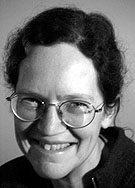Das Historische Buch 2009
Jan C. Behrends Ralf Behrwald Hartmut Berghoff Frank Bösch Guido Braun Kai Brodersen Susanna Burghartz Sebastian Conrad Eckart Conze Christoph Cornelißen Volker Depkat Jost Dülffer Josef Ehmer Joachim Eibach Andreas Fahrmeir Norbert Finzsch Peter Funke Patrick J. Geary Dominik Geppert Christian Geulen Martin H. Geyer Dieter Gosewinkel Rebekka Habermas Martina Hartmann Manfred Hettling Gerhard Hirschfeld Stefan-Ludwig Hoffmann Marietta Horster Hartmut Kaelble Martina Kaller-Dietrich Friedrich Kießling Jürgen Kocka Martin Kohlrausch Birthe Kundrus Ulrich Lambrecht Karl Christian Lammers Achim Landwehr Simone Lässig Ursula Lehmkuhl Chris Lorenz Christoph Marx Michael Matheus Mischa Meier Gabriele Metzler Jürgen Miethke Olaf Mörke Sabine Müller Dietmar Neutatz Bill Niven Alexander Nützenadel Marek Jan Olbrycht Ilaria Porciani Daniela Rando Stefan Rebenich Frank Rexroth Andreas Rödder Krzysztof Ruchniewicz Dominic Sachsenmaier Birgit Schäbler Wolfgang Schmale Helga Schnabel-Schüle Ute Schneider Petra Schulte Martin Schulze Wessel Hubertus Seibert Hannes Siegrist Barbara Stollberg-Rilinger Birgit Studt Winfried Süß Claudia Tiersch Stefan Troebst Bärbel Völkel Christina von Hodenberg Michael Wildt Andreas Wirsching Michael Zeuske Reinhard Zöllner | Prof. Dr. Mary FulbrookUniversity College London LebenslaufGeboren 1951, Cardiff, Wales. Aufgewachsen in Cardiff und Birmingham. Schulabschluss in 1969. Studium:Archaeology and Anthropology, Social and Political Sciences, Comparative History; Abschlüsse:MA (Cantab.), AM, PhD (Harvard) Thema der PhD thesis:Piety and Politics: Religion and the Rise of Absolutism in England, Württemberg and Prussia Tätigkeiten an Hochschulen oder Forschungseinrichtungen:Research Fellow, New Hall, Cambridge, 1979-1982 Zurückliegende Forschungsschwerpunkte
Religion and politics in England and Germany, 16th - 18th centuries Aktuelle Forschungsschwerpunkte
1. Sozialgeschichte der DDR (Buch für Yale University Press; 2004) Wichtige Monographien oder Herausgeberschaften
Hrsg:Fragen zur historischen Forschungslandschaft und zu aktuellen Debatten2. a) Wie kamen Sie zur Geschichtswissenschaft? Was hat Sie motiviert, Geschichte zu Ihrem Beruf zu machen? In general: interest and enjoyment; fascination with the varieties of human society and culture, the difference of the past, and the emergence of different notions of what it is to be human and how best to organise society and politics. With respect to German history in particular: the extraordinary contrast between the depths of the Holocaust, on the one hand, and a fascination with aspects of the country, the culture (Goethe, Bach) and the language, on the other. My mother, for both political and 'racial' reasons, left her native Berlin for Britain in 1936. She married a Canadian scientist (and pacifist), did not teach me German as a child, and I had to learn German as a second language at school. I both loved visiting Germany, and found it a deeply problematic place - thus wanted to explore and understand its history and culture more thoroughly. As a Beruf: I hugely enjoy teaching, research and writing and am fortunate to be paid to do these things. 2. b) Die Geschichtswissenschaften haben in den zurückliegenden Jahrzehnten zahlreiche Erweiterungen und Neuorientierungen der Frageansätze und Forschungsperspektiven erfahren. Welche halten Sie für die interessanteste und folgenreichste? The renewed explicit interest in theoretical questions, partly provoked by post-modernist challenges. The expansion of traditional political narratives by the newer combination of social / societal / structural approaches and cultural analyses - in other words, the overcoming of entrenched perspectival paradigms. Debates on the relations between historical representations and 'the past as it actually was", also on the relationships between politics and historical interpretations. See my recent book on Historical Theory (2002) for a much longer version of this! 2. c) Sehen Sie Forschungsfelder, denen man künftig mehr Aufmerksamkeit widmen sollte? The interaction of social/structural history and political/narrative history; comparative history, long view history; the interplay between national paradigms and wider (transnational) trends; terrorism and the international order. Homepage: http://www.ucl.ac.uk/german/aboutus/staff/fulbrook.htm |

